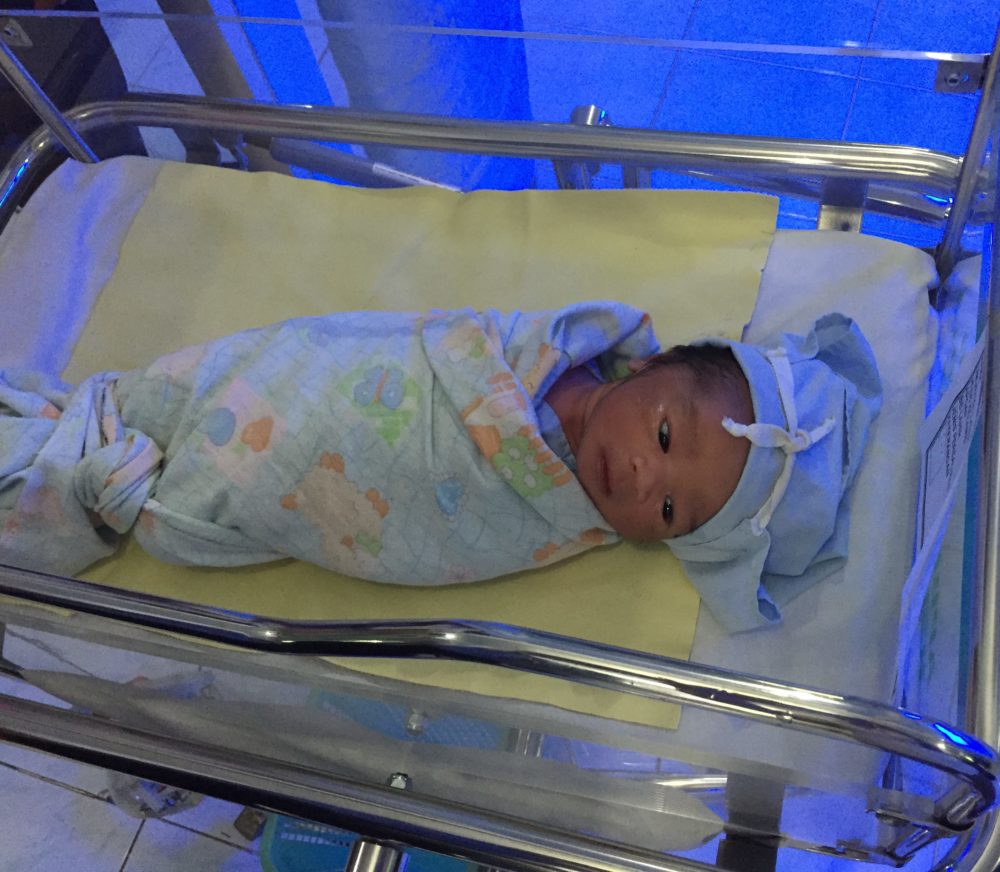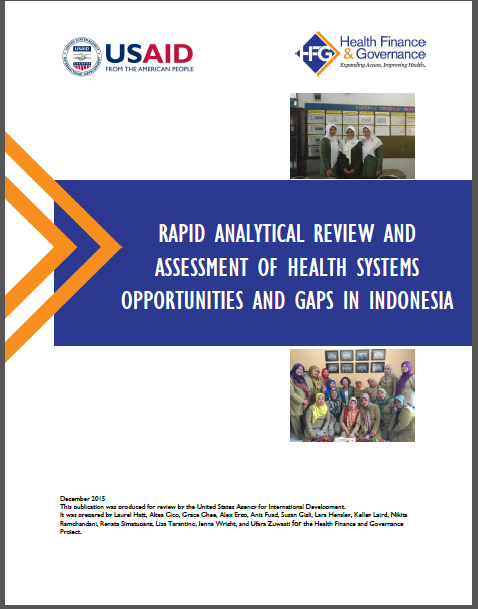Study to Inform Planning, Implementation of UHC Initiatives in Indonesia
 A rapid and exciting transformation has been taking place in Indonesia’s health sector since early 2014, when the country launched a new Universal Health Coverage (UHC) initiative. Indonesia’s Jaminan Kesehatan Nasional (JKN) health insurance program aims to cover the entire population – more than 255 million people – by 2019. When fully implemented, Indonesia will have the largest social health insurance program in the world.
A rapid and exciting transformation has been taking place in Indonesia’s health sector since early 2014, when the country launched a new Universal Health Coverage (UHC) initiative. Indonesia’s Jaminan Kesehatan Nasional (JKN) health insurance program aims to cover the entire population – more than 255 million people – by 2019. When fully implemented, Indonesia will have the largest social health insurance program in the world.
But the government faces many challenges in implementing this ambitious reform agenda. The rising costs of the JKN program, health worker shortages in remote parts of the country, poor quality of care, inequitable access to services, and persistently high maternal mortality rates continue to cause concern. And the informal sector —about one-third of the population—still lacks coverage: they are not poor enough to qualify for subsidized care, but also don’t have formal employment with health insurance benefits. How to expand coverage to this group remains a topic of debate.
Against this background of transformational change, USAID is collaborating with the government to promote sustainable financing for service delivery, health systems strengthening, and robust private sector engagement. To inform its investments in technical assistance in Indonesia, USAID commissioned HFG to conduct a rapid assessment of Indonesia’s health system 2015. The review provided an opportunity for government, private sector, and development partner stakeholders to weigh in on the nation’s highest-priority health sector challenges as Indonesia embarks on numerous reforms.
The HFG team adapted the methodology of the Health System Assessment Approach , which is organized around the World Health Organization’s health systems building blocks and has been applied in dozens of countries. The adapted assessment focused on the governance, health financing, service delivery, and information systems building blocks, and incorporated a special chapter on social protection programs and efforts to target the poor and vulnerable.
The new report – Rapid Analytical Review and Assessment of Health Systems Gaps and Opportunities in Indonesia – summarizes the process and results of the rapid review. Key findings included the following:
 While Indonesia’s dramatic decentralization process offers opportunity for local governments to be more responsive to the needs of their populations, local health sector managers need capacity strengthening to reflect new roles and responsibilities in implementing JKN and other recent reforms.
While Indonesia’s dramatic decentralization process offers opportunity for local governments to be more responsive to the needs of their populations, local health sector managers need capacity strengthening to reflect new roles and responsibilities in implementing JKN and other recent reforms.- JKN offers the potential for improved financial protection and access to care for the population. But financing for health is still highly fragmented, making strategic resource management difficult. The report suggests targeted strategies for covering the informal sector under JKN, and emphasizes the importance of promoting strategic purchasing.
- The new JKN single payer agency has huge potential to incentivize better quality service provision, through a more robust accreditation process, contracting with private providers, and performance-based payments.
- Indonesia’s “Unified Database” of poor and vulnerable households is a powerful tool for targeting social assistance programs, including health care subsidies, and could be leveraged even more to reduce poverty through intersectoral collaboration.
These findings highlight areas to increase efficiency, offer strategies for developing sustainable financing, and will inform USAID’s collaboration with the government of Indonesia to achieve UHC.



